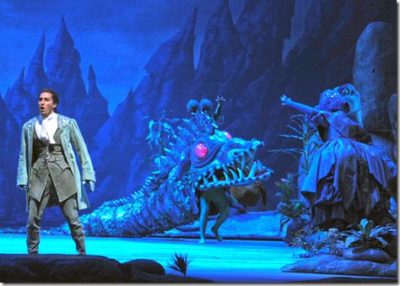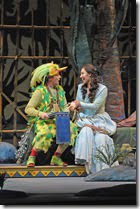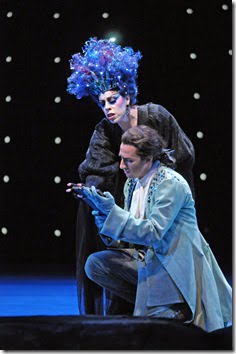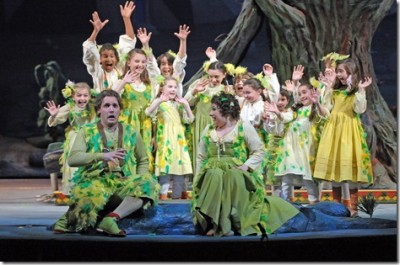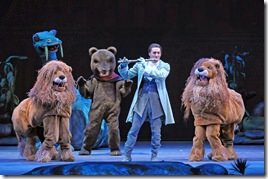The Magic Flute
The Magic Flute
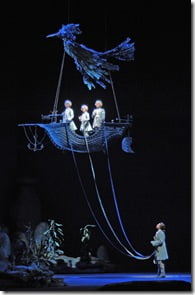
Composed by Wolfgang Amadeus Mozart
Libretto by Emanuel Schikaneder
and Carl Ludwig Giesecke
Conducted by Sir Andrew Davis
Directed by Matthew Lata
“Without music, life would be a mistake.”
Die Zauberflöte is easily one of the most-performed and most-beloved of all operas. It is instantly recognizable and often serves as a “gateway opera”: the first opera one sees before getting into the more “hardcore” operas, the white ponies and nose-candy operas like Carmen and Tristan; The Magic Flute leaves you with that euphoric, mellow high that leaves you wanting more, wondering what else is out there and why you haven’t tried it yet.
And for such a purpose the Lyric has served up a choice bag. Charles Castronovo is fantastic as the lead, Tamino, the lovesick, noble Prince who seeks wisdom and his beloved Pamina (Nicole Cabell, also wonderful). Papageno, played excellently by Stéphane Degout, stands in as Mozart’s playful clown, the commoner who is unable to obtain wisdom and wants only food and drink, but whose charisma is unparalleled. Rodell Rosel, whom we recently saw playing the three butlers in Tales of Hoffman, here is Monostatos, the slavish overseer of the monolithically just Sarastro (Günther Groissböck), head of the order who worship Isis and Osiris.
Both put in admirable performances. The three ladies under the Queen’s command, Elisabeth Meister, Cecelia Hall and Katherine Lerner were all spot-on comediennes with impeccable voices, and the three boys, Anna Stephan, Benjamin Hoppe and Nicole Horio were both impressive and adorable. The Queen of the Night, Audrey Luna, put in a solid performance as well, hitting all the notes of one of opera’s most notoriously difficult arias – though she was not perfect and occasionally felt a bit shrill.
And the production is very impressive. The sets are gorgeous, the costumes beautiful (although the animal costumes were apparently reused from the Lyric’s ’86-’87 season – which means they’re about as old as I am and show considerably less wear). That said, this is at times a very difficult opera, musically, and there were moments when the chorus and the orchestra were not in sync. I hope, though, that things like this will be corrected in future performances. I imagine words are had when something like that occurs.
For those of us either unfamiliar or who hold only cursory knowledge of the opera, it’s sort of Mozart’s musical comedy. Overall it’s quite light and the morality of it is somewhat ham-handed, if classic: typical Sun vs. Moon, Light vs. Dark, Wisdom vs. Ignorance sort of stuff. Maybe (though not necessarily) some references to Free Masonry in there.
This is Mozart’s opera for das Volk. It’s meant to have something in it for everybody: spectacle and humor for the commoners, elegance and a strong moral compass for the elite; as such, it truly is a wonderful opera for neophytes. It has both relatively simple music (much of Papageno’s fare) as well as some truly breathtaking virtuosic moments (the aforementioned aria of the Queen, “Der Hölle Rache kocht in meinem Herzen”). And as Mozart is truly the master of melody and countermelody, everything is a joy to listen to. So, if you’re a grizzled opera veteran, it will be fun to go back to the tried-and-true basics; and if you’re trying to get someone hooked on one of the most enjoyable and most expensive drugs du jour, this would be an excellent place to start.
Highly Recommended
Will Fink
Date Reviewed: December 8, 2011
For more info, checkout The Magic Flute page on Theatreinchicago.com

